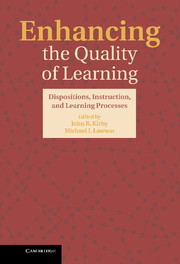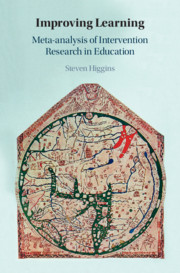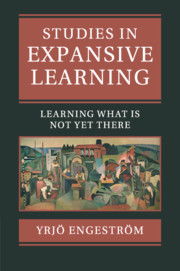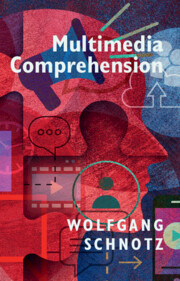Learning with Animation
Research Implications for Design
$43.99 (P)
- Editors:
- Richard Lowe, Curtin University of Technology, Perth
- Wolfgang Schnotz, University of Koblenz-Landau, Germany
- Date Published: November 2007
- availability: Available
- format: Paperback
- isbn: 9780521617390
$
43.99
(P)
Paperback
Other available formats:
Hardback
Looking for an examination copy?
If you are interested in the title for your course we can consider offering an examination copy. To register your interest please contact [email protected] providing details of the course you are teaching.
-
The use of animations has recently become common in multimedia teaching and learning. Animations are assumed to increase interest and motivation, direct attention, illustrate procedures, and explain how things work. Recent research shows that animations are not inherently effective. Their educational effectiveness depends on how the characteristics of animations interact with the psychological functioning of the learner. Clarifying and integrating the major themes of current research, this book explores requirements for the principled design of learning resources that incorporate animation. Such materials can only be successful if their design reflects principles governing how learners develop understandings with animations, and the goal of this book is to improve the way educational animations are designed and used within a variety of learning contexts.
Read more- The only comprehensive, theory-based text on this topic
- Based on recent research of internationally acknowledged experts in the field
- Will appeal to both academic researchers as well as instructors, designers and developers in the field of education
Reviews & endorsements
'The international authors clarify and integrate the major themes of current research into learning with animation, exploring requirements for the principled design of learning resources.' The Times Higher Education Supplement
Customer reviews
Not yet reviewed
Be the first to review
Review was not posted due to profanity
×Product details
- Date Published: November 2007
- format: Paperback
- isbn: 9780521617390
- length: 402 pages
- dimensions: 227 x 151 x 25 mm
- weight: 0.546kg
- contains: 21 tables
- availability: Available
Table of Contents
Preface Richard Lowe and Wolfgang Schnotz
Part I. Information Search and Processing:
1. Effects of knowledge and spatial ability on learning from animation Mary Hegarty and Sarah Kriz
2. Research-based principles for learning with animation Richard Mayer
3. Learning from animation: where to look, when to look Richard Lowe
Part II. Individual Differences and Strategies:
4. Successful and less successful use of dynamic visualizations in instructional texts Rolf Ploetzner, Daniel Bodemer and Sieglinde Neudert
5. Functions of animation in comprehension and learning Wolfgang Schnotz and Thorsten Rasch
6. Animations of thought: interactivity in the teachable agent paradigm Daniel L. Schwartz, Kristen P. Blair, Gautam Biswas, Krittaya Leelawong and Joan Davis
7. Making sense of animation: how do children explore multimedia instruction? Mireille Bétrancourt and Alain Chassot
8. Commentary on Parts I and II John R. Kirby
Part III. Interactivity and Learning:
9. Animated pedagogical agents: how do they help students construct knowledge from interactive multimedia games? Roxana Moreno
10. Young learners' control of technical animations Jean-Michel Boucheix
11. Turning the tables: investigating characteristics and efficacy of student-authored animations and multimedia N. Hari Narayanan and Theresa Hübscher-Younger
Part IV. Instructional Issues:
12. Enriching animations Barbara Tversky, Julie Heiser, Rachel Mackenzie, Sandra Lozano and Julie Morrison
13. A comparison of how animation has been used to support formal, informal, and playful learning Yvonne Rogers
14. A unified view of learning from animated and static graphics Wolfgang Schnotz and Richard Lowe
15. Commentary on Parts III and IV Susan R. Goldman.Instructors have used or reviewed this title for the following courses
- Introduction to Educational Simulations and Games
Sorry, this resource is locked
Please register or sign in to request access. If you are having problems accessing these resources please email [email protected]
Register Sign in» Proceed
You are now leaving the Cambridge University Press website. Your eBook purchase and download will be completed by our partner www.ebooks.com. Please see the permission section of the www.ebooks.com catalogue page for details of the print & copy limits on our eBooks.
Continue ×Are you sure you want to delete your account?
This cannot be undone.
Thank you for your feedback which will help us improve our service.
If you requested a response, we will make sure to get back to you shortly.
×






